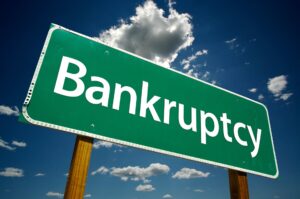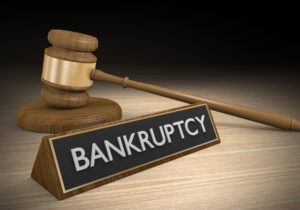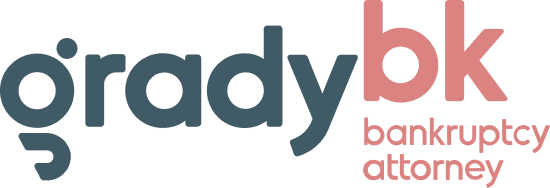The most important element of Chapter 7 bankruptcy is being completely open about your finances. Overall, it simplifies the process and ensures fairness for everyone involved. By being direct about your situation, you ensure that your bankruptcy petition is accurate and that it benefits you in all the ways that it’s designed to do. Honesty in these matters also reduces the risk of complications or delays and supports a fair distribution to creditors, based on your actual financial situation.
Additionally, full financial transparency helps you comply with the bankruptcy laws and regulations in New York and makes sure you never face allegations of fraud or concealment of assets. This article will go into more detail about Chapter 7 bankruptcy and what legal obligations you’ll likely face. We’ll also tackle some common misconceptions that make people avoid Chapter 7 and explain the truth about the process.
At Grady BK, PLLC, we understand how scary the idea of bankruptcy can be. That’s why we provide the residents in Central New York and The North Country with legal expertise and a compassionate approach. If you’re considering Chapter 7 bankruptcy, let us provide you with the guidance and support you need for a better financial future.
Understanding Chapter 7 Bankruptcy
Chapter 7 bankruptcy is a fresh start for people drowning in debt. It’s a way to clear away impossible financial obligations and begin again without the burden of debt. Contrary to popular belief, Chapter 7 bankruptcy does not usually involve liquidating your assets to pay back your debts. In fact, the process is designed to protect and preserve your assets so you can move forward in life with the things you need to thrive. In a typical Chapter 7 bankruptcy case, most debts not backed by collateral (like credit card bills and medical expenses) can be wiped away entirely upon completion of the bankruptcy. And thanks to New York exemption laws, important items like your home, car, and personal belongings stay secure and protected.
Why Full Financial Transparency is Important in Chapter 7 Bankruptcy
When you file for Chapter 7, you’ll list all of your financial assets, including everything you own, your debts and obligations, and your monthly income and expenses. Full financial transparency at this point will ensure that the Chapter 7 process is fair for both you and your creditors. Disclosing all financial details also maximizes the potential for discharging your unsecured debts. The court will use the information you provide to determine which debts you can pay back and which are beyond your capacity to settle.
Full Financial transparency on your part will mean that the personal assets you care about most will remain eligible for exemption from your bankruptcy. On the other hand, lying about or attempting to hide expensive assets could result in repossession of the items and a dismissal of your case.
Consequences of Misrepresenting Assets in Chapter 7 Bankruptcy
When you file for Chapter 7 bankruptcy in New York, it’s important to be honest about your assets. The U.S. Bankruptcy Code, under 11 U.S.C. § 727(a)(4)(A), strictly forbids giving false information or hiding assets. This means that if you don’t provide full financial transparency, you could still be stuck with your debts even after filing for bankruptcy.
New York also has its own rules under the Debtor and Creditor Law (Sections 276 to 281), which stop you from transferring assets to friends, family, or others to avoid paying your debts. If the court catches any hidden or illegally transferred assets, it can take them back from the buyer and sell them off to pay your debts.
Additionally, willfully lying in your Chapter 7 bankruptcy case can lead to criminal charges. Bankruptcy fraud is a serious crime that can result in up to five years in prison and fines of up to $250,000. On the professional side, lying to a bankruptcy court can also hurt your credibility and make future financial opportunities more difficult. Chapter 7 bankruptcy is designed to help people recover from insurmountable debt, and full financial transparency is crucial to the process. By being honest about your situation, you can dismiss more of your debts, keep more of your assets, and avoid the harsh penalties that lying or hiding can bring.
Common Misconceptions About Chapter 7 Bankruptcy
Myth: Bankruptcy Erases All Debts
A common belief is that declaring bankruptcy wipes out all debts. However, this is not always the case. While Chapter 7 bankruptcy can discharge many unsecured debts like credit card bills and medical expenses, there are exceptions. Student loans, child support, alimony, and certain tax obligations are not included in Chapter 7, and you will still be responsible for them even after your other debts have been cleared.
Myth: You Lose All Your Property in Bankruptcy
A major concern people have about bankruptcy is the fear of losing everything they own. In reality, Chapter 7 bankruptcy is designed specifically to prevent this from happening. New York has exemption laws that protect essential assets like your home, car, everyday household items, and any tools necessary for your job. It’s designed so you don’t have to start from scratch to achieve financial freedom.
Myth: Bankruptcy Permanently Ruins Your Credit
It’s true that a Chapter 7 bankruptcy will stay on your credit report for up to 10 years, but it doesn’t permanently ruin your credit. Many people see an improvement in their credit scores in as little as one year. The key is to rebuild credit over time with small loans you can easily afford. Grady BK, PLLC, will give you information and tips on how to rebuild your credit after the bankruptcy is filed.
Grady BK, PLLC: Your Partner Through Chapter 7 Bankruptcy
Facing bankruptcy is not easy, but you’re not alone. Grady BK, PLLC is dedicated to guiding you through each step with compassionate support. If you’re feeling overwhelmed by debt and unsure about your next steps, reach out to us at (315) 299-9005. We’re here to help you regain control of your finances and move forward to a more stable future.




